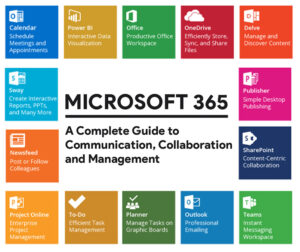Introduction
Most people assume that the safest, smartest way to buy Microsoft software is to go directly to the source. After all, who knows the product better than Microsoft? But here’s the reality: Microsoft actively encourages other companies—called partners or resellers, to sell its software licenses. Why? Because it makes sense for both Microsoft and the businesses it serves.
In this article, we’ll explore why companies sell Microsoft software licenses and why working with a third-party provider is often a better, more efficient option than buying directly from Microsoft.
How Microsoft Licensing Works
Microsoft’s licensing model is built to be flexible and scalable. There are a few major types of licenses:
– OEM (Original Equipment Manufacturer): These licenses come pre-installed on devices.
– Volume Licensing: Designed for large organizations purchasing multiple licenses.
– CSP (Cloud Solution Provider): A modern model where Microsoft licenses are sold through certified partners.
– Open Licensing (being phased out): Targeted toward small-to-midsize businesses with basic software needs.
CSP partners, in particular, act as trusted intermediaries. They don’t just sell licenses—they also offer value-added services like support, billing, integration, and long-term IT strategy.
Why Companies Sell Microsoft Software Licenses
Microsoft’s channel-based model relies heavily on trusted partners. These companies resell Microsoft licenses for several reasons:
1. Authorized Reseller Programs: Microsoft authorizes certain companies to sell licenses under the Cloud Solution Provider (CSP) program. This allows resellers to manage licenses, billing, and support on behalf of the client.
2. Value-Added Services: Resellers often bundle Microsoft products with other offerings such as managed IT services, cybersecurity protection, or custom cloud environments.
3. Revenue Streams: Licensing resale gives IT companies recurring revenue and allows them to deepen relationships with clients.
4. Control & Customization: Businesses selling licenses can tailor service levels, offer strategic recommendations, and provide integrated solutions Microsoft itself may not offer directly.
Benefits of Buying Microsoft Licenses Through a Third-Party Provider
Cost Savings
Third-party providers often have access to special pricing and can bundle services in ways that reduce total IT spend. You may also avoid upfront costs by opting for monthly subscription models.
Personalized Support
Need help setting up Microsoft 365? Want to migrate your email? A third-party provider can assist you directly, often with faster and more knowledgeable support than Microsoft’s standard helpdesk.
Flexible Licensing Options
Providers can offer short-term or scalable licensing plans with low barriers to entry. You can easily add or remove users and services as your business evolves.
Integrated IT Services
Many resellers are also managed service providers (MSPs). They can combine your Microsoft software with cloud hosting, backup solutions, or full-stack support—something Microsoft itself won’t do.
Simplified Management
Third-party providers often include dashboards or tools to help you manage updates, renewals, and compliance without needing to navigate multiple Microsoft portals.
When It Makes Sense to Go Direct
There are situations where buying directly from Microsoft might be the better route:
- Enterprise Agreements: Large corporations often negotiate directly with Microsoft for massive licensing deals.
- Internal Licensing Expertise: Companies with dedicated licensing managers or legal teams may prefer direct relationships.
- Compliance Requirements: Some industries have strict rules that necessitate direct licensing or a specific purchasing channel.
Even then, many still choose third-party providers for project-based work, support, or infrastructure guidance.
What to Look for in a Third-Party Microsoft License Provider
If you’re considering working with a reseller, here’s what to look for:
- Microsoft Partner Status: Look for CSPs or Microsoft Certified Partners—this means they’ve met Microsoft’s standards for training and support.
- Transparent Pricing: Avoid resellers that bundle licenses with hidden fees or vague terms.
- Support Availability: Choose a provider with strong customer support—ideally one that’s local or offers fast response times.
- Customization: Ensure they’re able to adapt licenses and services to your specific business needs and workflows.
- Proven Experience: Ask for case studies or references from companies like yours.
Final Thoughts
Purchasing Microsoft licenses through a third-party provider is often the smarter, more cost-effective route, especially for small and medium-sized businesses. You get the same software, often with better support, more flexible billing, and value-added services that go far beyond a simple software purchase.
Instead of managing your Microsoft relationship on your own, let an experienced provider streamline your licensing and IT needs, so you can focus on growing your business. It’s not just a software purchase, it’s a smarter IT strategy.
If you’re ready to take the hassle out of licensing and make your IT more efficient, contact DesignTech today, your trusted Microsoft partner.




